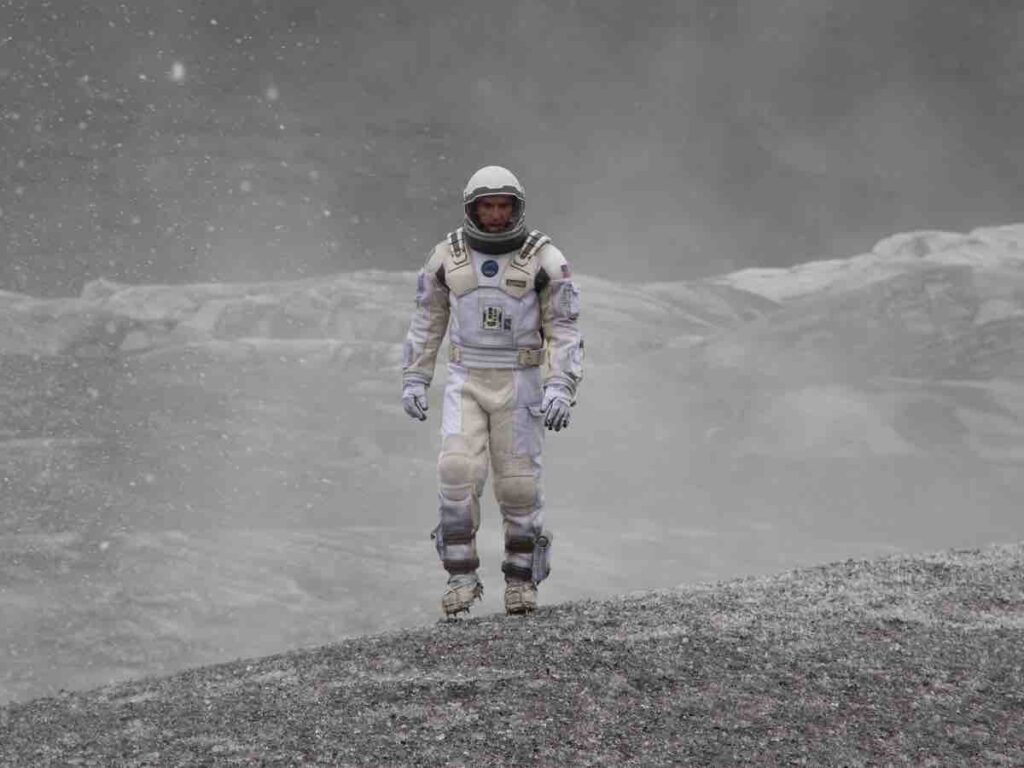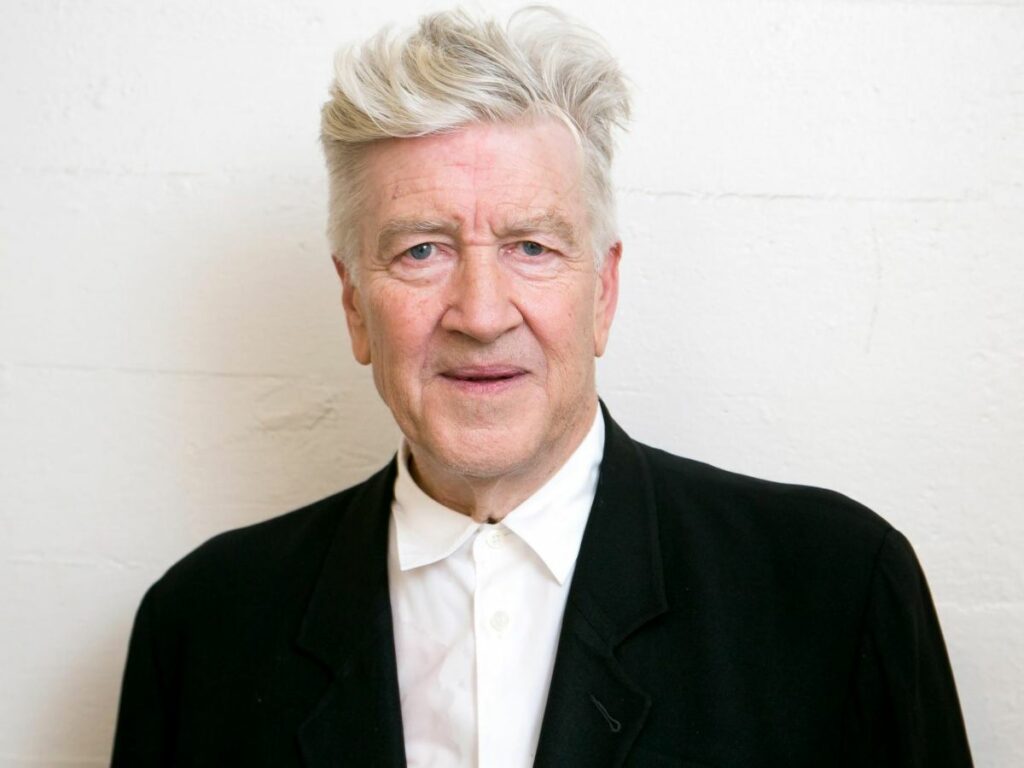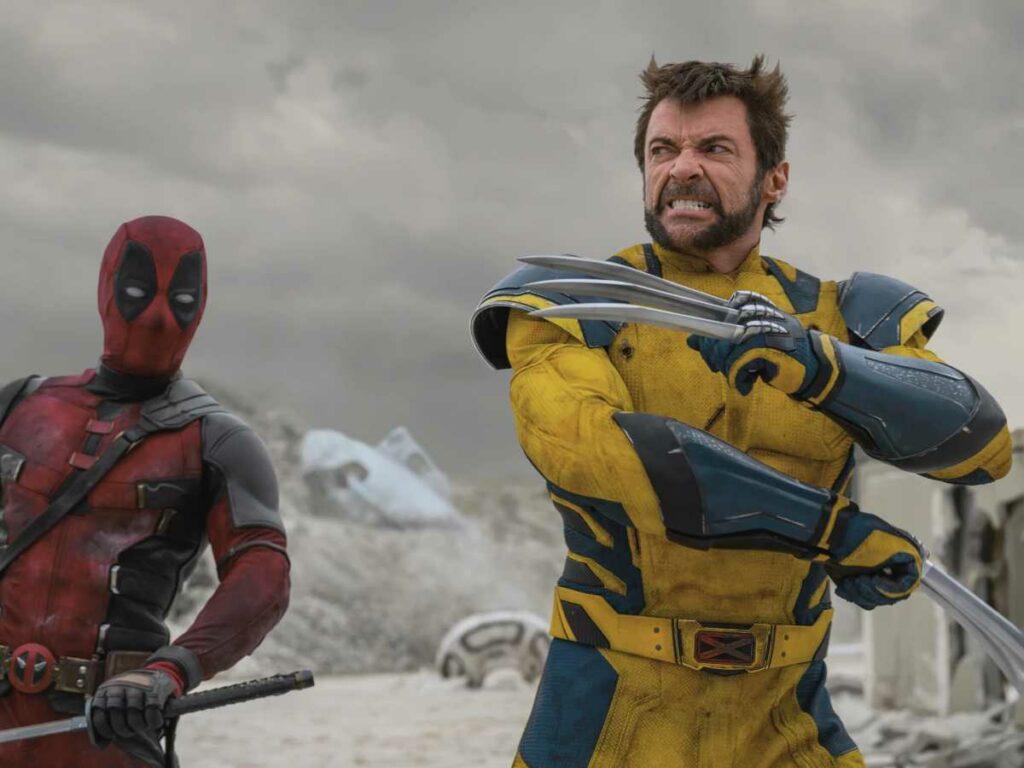From Solaris (1972) to Arrival, here are 13 movies like Interstellar every Nolan fan will love.
In a very short span of time, Christopher Nolan has established himself as one of the most influential directors of our times. He redefined the superhero genre with The Dark Knight trilogy creating layered characters and action set pieces that didn’t rely on CGI to do the heavy lifting. In 2016, Memento, The Dark Knight, and Inception appeared in BBC’s 100 Greatest Films of the 21st Century list. Nolan’s essentially carved out a niche for himself and kept an alternate model of big-budget filmmaking alive in an era where blockbusters have become a computer-generated art form.
He turned his attention towards sci-fi and space travel with Interstellar. Starring Matthew McConaughey, Anne Hathaway, Jessica Chastain, Matt Damon, Interstellar is set in a dystopian future where humanity is struggling to survive. The film follows a group of astronauts who travel through a wormhole in search of a new home for mankind. Visually breathtaking and conceptually audacious, Interstellar was a spectacle that needed to be seen on the biggest screen. Despite the myriad of scientific concepts, I loved that the film had a strong emotional core. Its overriding message about love — a powerful force that cannot be quantified in scientific terms struck a chord with me.
Very quickly then, here are 13 movies like Interstellar for all you sci-fi fanatics:
Movies Like Interstellar
1. Ikarie XB-1 (1963)
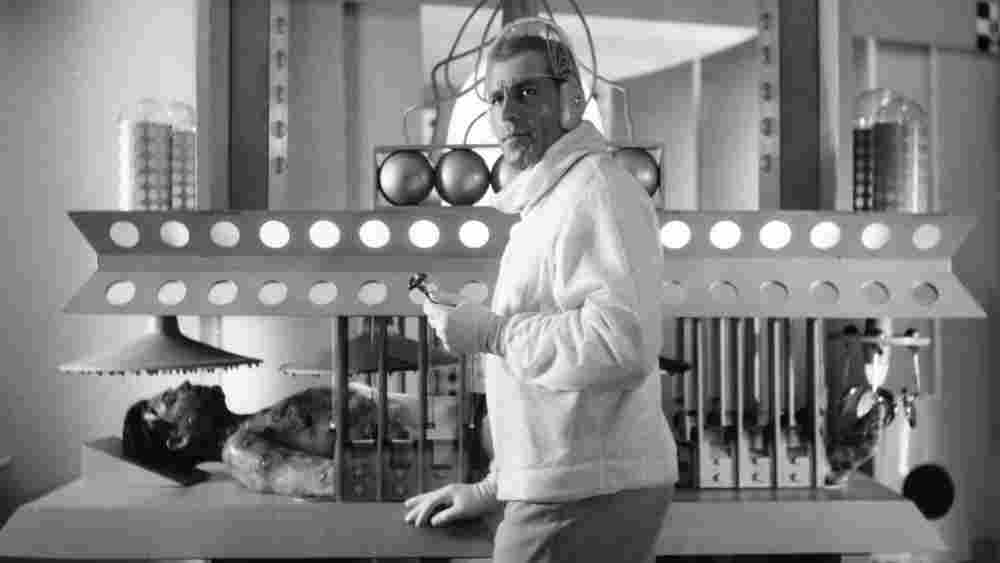
Communist-era Czech film Ikarie XB-1 was based on Stanislaw Lem’s 1955 novel The Magellanic Cloud. Directed by Jindrich Polak, the narrative is set in the year 2163, where a global crew travel through outer space to reach potentially-life inhabiting planet orbiting Alpha Centauri. Due to the nature of relativity, though the travel would seem like 28 months for the crew, 15 years would have passed away back on Earth. Ikarie XB-1 is an optimistic take on humanity and space travel though it’s tinged with Soviet propaganda.
The film looks quaint compared to the magnificent production design of 2001: A Space Odyssey. But Kubrick took some inspiration from the Czech film. The video conferencing and video calls technology and HAL-like artificial intelligence are part of the 1963 film which showcases the writer and filmmaker’s vision of the future. It’s not a great sci-fi film, but it’s one of the earlier films to envision interstellar travel that is somewhat convincing.
2. 2001: A Space Odyssey (1968)
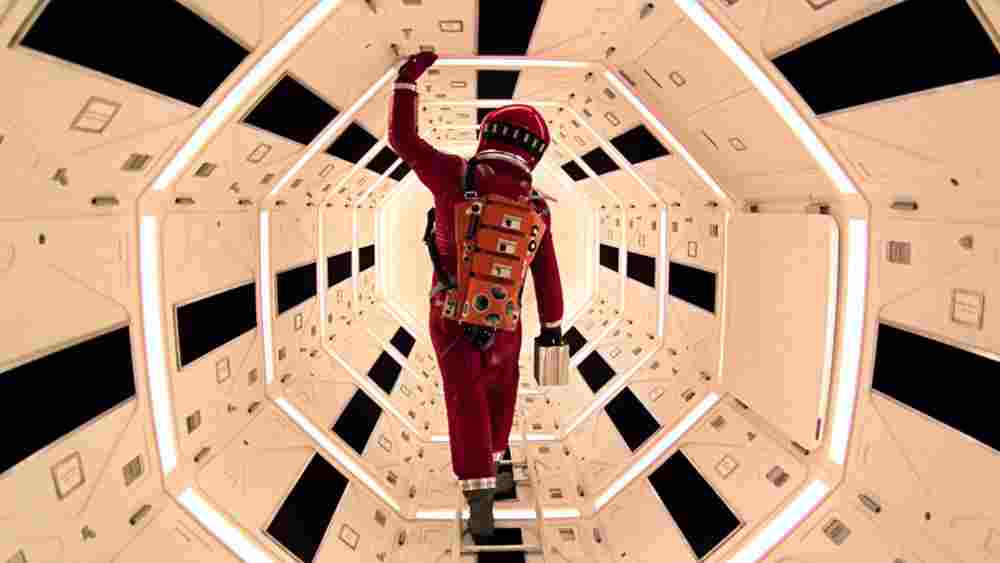
Christopher Nolan is clearly inspired by Stanley Kubrick. Critics have especially found stylistic similarities between Kubrick’s realization of spaceship interiors or docking mechanisms and Nolan’s visuals of the same. Inspired by Arthur C. Clarke’s 1951 short story, this cult classic is not only one of the greatest space movies but also the most influential films ever made. It opened up a market for big-budget sci-fi films paving the way for hundreds of space opera features that followed suit. Advertised as an epic drama of adventure and space exploration, it follows a voyage to Jupiter after the discovery of an alien monolith.
One could say that Nolan’s Interstellar expanded on similar theoretical ideas to 2001: A Space Odyssey. However, Kubrick’s intent was to create a cerebral sci-fi, whereas Nolan allows human emotions to take center stage. Stunningly shot, the film still holds up to this day. It goes to show the kind of visionary that Kubrick was.
WATCH: 2001: A Space Odyssey EXPLAINED
3. Solaris (1972)

While Nolan’s Interstellar can be easily connected to Ikarie XB-1 and 2001: A Space Odyssey, there’s also another major sci-fi epic with which Nolan’s film shares some themes. Tarkovsky’s Solaris is an adaptation of Stanislaw Lem’s profound sci-fi novel of the same name. The film tells the story of a psychologist named Kris Kelvin, who travels to a space station orbiting the oceanic planet called Solaris. The strange ocean seems to withhold some kind of consciousness, but the scientists’ attempt to communicate with it leads to inexplicable anomalies.
Tarkovsky explores the themes of memory, grief, and the passage of time. Something the protagonist Cooper in Interstellar wrestles with. Though what the cosmonauts face in both these narratives are totally different, the obscurities of an alien planet haunt them. Moreover, Nolan’s film features the recurring visual motif of water, which is a central image in Tarkovsky’s works. Eventually, Solaris and Interstellar emphasize that however much we travel in space to explore, our basic human instinct will always define our perspective and drive our actions.
4. Event Horizon (1997)
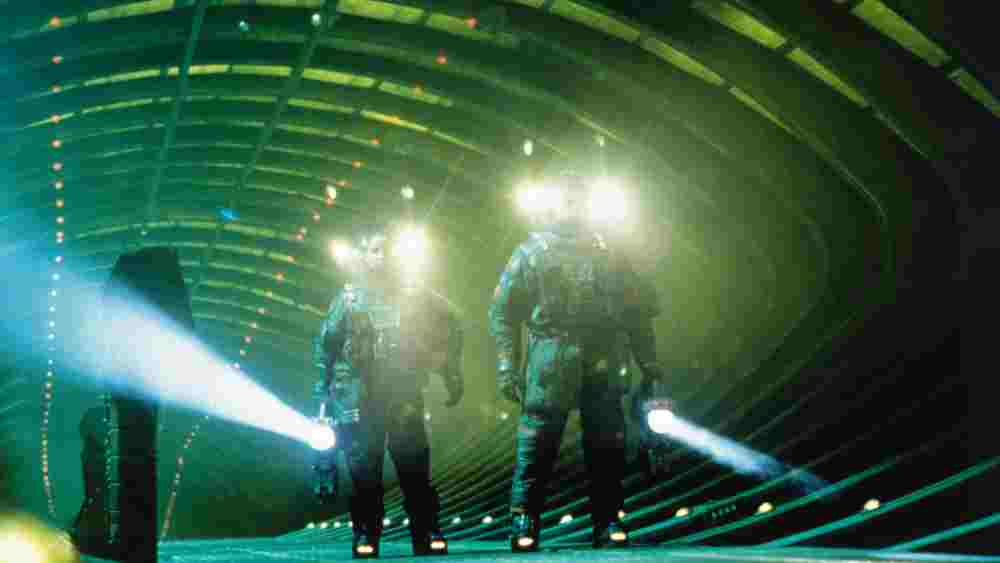
Christopher Nolan’s Interstellar tried to portray wormholes and black holes in a plausible manner unlike any other Hollywood blockbusters. While Interstellar tried to establish itself on the hard sci-fi spectrum, Event Horizon is one of the entertaining Hollywood features that deal with similar subjects. Though critically panned, Paul W.S. Anderson’s film is a rare sci-fi, horror hybrid like Alien which keeps us totally engaged. It revolves around a space ship crew, who are sent to investigate a mysterious vessel with a unique gravity drive that facilitates quick travel through space.
The gravity drive is based on wormhole physics. In the narrative, the vessel opens up a portal to another dimension that can be termed hell. Perhaps, the most interesting scene in Event Horizon is when Sam Neill’s character Dr. William Weir explains what a wormhole is. And he further states how a wormhole is theoretically a shortcut in the space-time continuum for spaceships to cover large distances in an instant. It reminds us of the scene when Dr. Romily briefs protagonist Cooper about the wormhole.
5. Sunshine (2007)
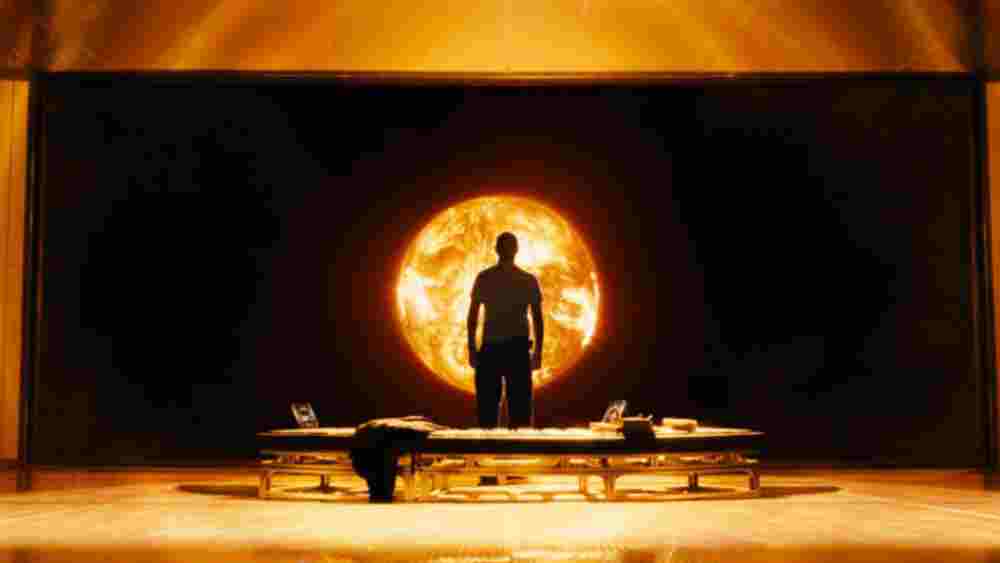
Similar to Nolan’s Interstellar, this sci-fi thriller is about a group of astronauts embarking on a do-or-die space journey to save humanity. While in Interstellar, an environmental crisis threatens humanity, in Sunshine the sun is slowly dying. Danny Boyle’s sci-fi movie featured a diverse cast of the likes of Cillian Murphy, Chris Evans, Benedict Wong, and Michelle Yeoh. They played the roles of a group of astronauts tasked with a dangerous mission to reignite the dying Sun.
Like other movies on this list, this film also boasts eye-popping outer space imagery. But, Boyle takes it a step further by marrying those visuals with intelligent action. Sunshine was largely dismissed by critics due to its misguided third act that introduces an antagonist. Many felt that the promise of a tense organic conflict of the space mission is offset by predictable acts of villainy. Nevertheless, the sci-fi movie is a surefire entertainer that’s backed by solid performances from the cast.
6. Moon (2009)
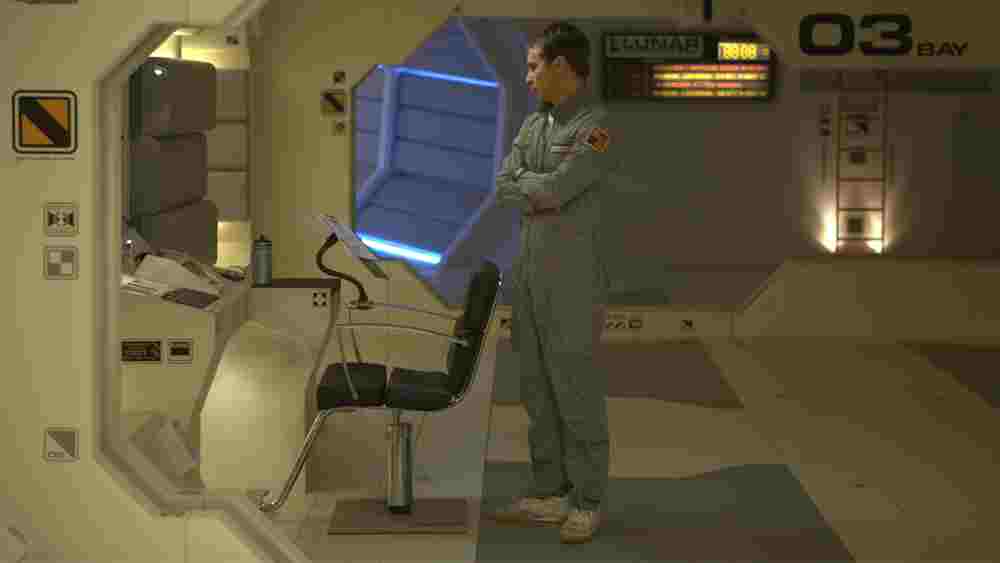
The small-scale space-set human drama is all the more important than extravagant sci-fi blockbusters. The film is set in the near future on the moon. An astronaut named Sam Bell (Sam Rockwell) works for a large energy corporation to mine power from the moon. Since an astronaut is needed to only monitor the giant robotic harvesters, the company sends Sam for a three-year stint. Sam is accompanied by a robot companion GERTY (voiced by Kevin Spacey). However, on one of his routine drives through the surface of the moon in the lunar rover, Sam meets with an accident. And that reveals a shocking truth about his mission.
In Interstellar, Matt Damon’s Mann character talks about the loneliness of his mission and the survival instinct that pushes him to do certain things. Similarly, Duncan Jones’ Moon predominantly deals with the existential crisis of a lone worker on the moon. If you have loved the psychological thrills of Interstellar, you should definitely watch Moon.
7. Gravity (2013)

Released a year before Nolan’s Interstellar, Alfonso Cuarón’s multiple-award-winning space-survival drama swiftly transports us to outer space with painstaking details. Gravity follows American astronauts stranded in space after the mid-orbit destruction of their Space Shuttle, and their brave attempt to return to Earth. It won 7 Academy Awards including Best Director for Cuarón. Like Interstellar, Gravity also explores themes of grief and emotional detachment while out in the cold depths of space.
Furthermore, both Interstellar and Gravity test human endurance and the limits of their emotions while battling survival in space without relying on the tropes of alien life or any other implausible scenarios. And both films share the themes of parenthood, hope, rebirth, and grief. I still vividly remember being awe-struck by the visuals. It was a technically dazzling production that had me at the edge of my seat during the nail-biting final act.
8. Edge of Tomorrow (2014)
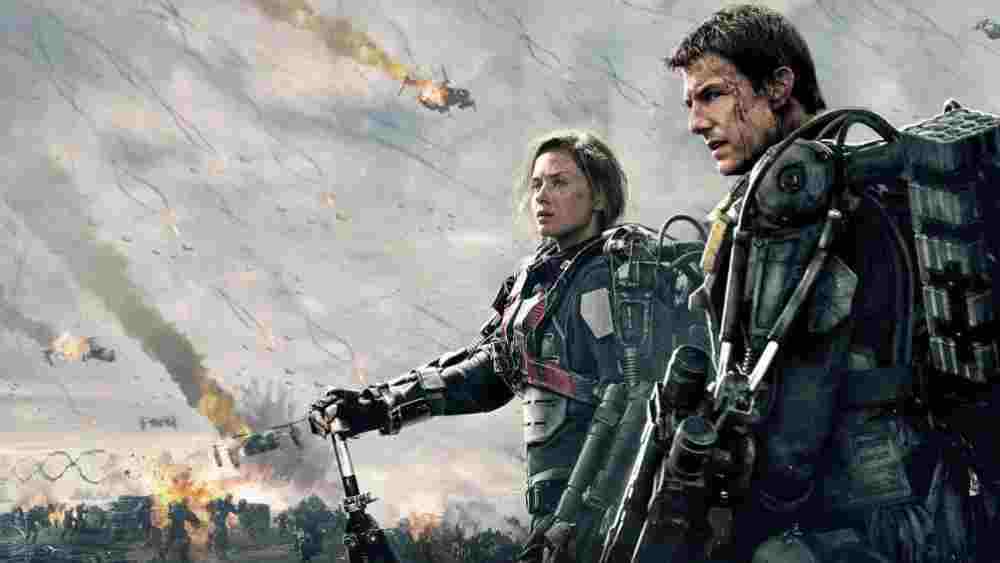
Doug Liman’s Edge of Tomorrow and Nolan’s Interstellar are different movies in a lot of ways. But both feature protagonists who are confined by time, and yet find a way to overcome the challenges in order to save the human race. Based on a screenplay adapted from the 2004 Japanese manga All You Need is Kill, Edge of Tomorrow is a smartly executed sci-fi film that uses the time loop narrative to great effect. Tom Cruise proves that he’s more than capable of bearing the weight of a blockbuster on his shoulders.
He plays Major William Cage, a public relations officer who’s thrust onto the battlefield with no experience under his belt. Cage finds himself experiencing a time loop as he desperately tries to find a way to defeat the invaders.
Edge of Tomorrow is a make-believe action flick, whereas Interstellar is an emotional drama based on a scientific theory. However, both contain a unique mind-bending concept that is more rewarding in repeat viewings.
9. The Martian (2015)

Matt Damon, the lone, psychotic astronaut stuck on a lifeless planet, nearly disrupts Cooper’s mission in Interstellar. The same Matt Damon plays a lone astronaut Mark Watney in Ridley Scott’s space exploration film, stranded on Mars who defies all odds to survive on an inhospitable planet and eventually gets rescued. Martian is an adaptation of Andy Weir’s best-selling novel and is easily the most upbeat film on this list. It depicts an astronaut’s lone struggle to survive on Mars after being left behind and the mighty efforts of NASA to bring him back home.
Though the stakes in Martian aren’t as high as in Interstellar, both films intensely explore the perils of space travel for humans. I would have liked to see a bit more character depth but Matt Damon’s goofy take on the character more than makes up for it. Overall, The Martian is exhilarating, surprisingly funny, and a worthy addition to Scott’s impressive filmography.
10. Arrival (2016)

The idea of encountering the unknown is the basic premise of Nolan’s Interstellar and Villeneuve’s Arrival. This was Denis Villeneuve’s first sci-fi film. It featured an excellent Amy Adams in the lead as a linguist enlisted by the Army to discover how to communicate with extraterrestrial aliens. Arrival received glowing reviews from critics upon release. AFI selected it as one of the 10 Movies of the Year in 2016. The mid-film revelation is a twist for the ages. It’s clever and made me sit up in anticipation as the realization hit. Arrival’s a grown-up sci-fi film that’s a treat not just for the eyes, but also for the soul.
Similar to Interstellar, this science fiction drama examines the nature of time. How it restricts us and at the same time, how we can use time to benefit us. Most importantly, both movies are about the love between a parent and a child and explore what makes us human.
11. Aniara (2018)
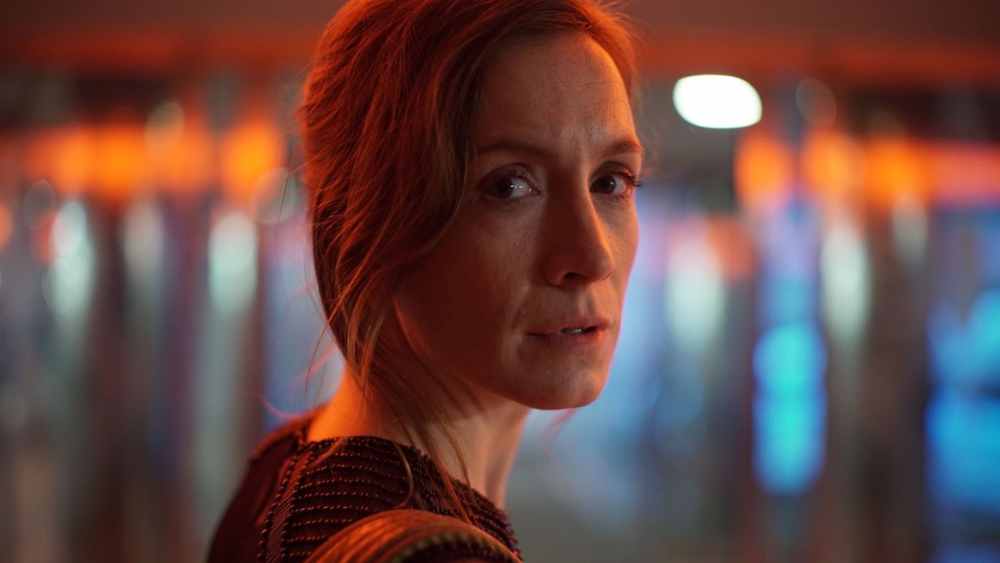
Pella Kagerman and Hugo Lilja’s Swedish sci-fi understand the existential terror of being in space. Aniara is set on an Earth that’s ravaged by natural disasters and rising sea levels. A group of settlers travels aboard a luxurious spaceship to reach a colony on Mars from Earth in three weeks. But an unprecedented accident leads to the ship’s entire fuel getting ejected into space. The captain of the ship does offer some hope about getting back on course. However, it could take years before their plan works out. Our entry point into this narrative is Mimaroben (Emelie Jonsson), a person responsible for looking after the mental health of the passengers with the help of a unique device called Mima.
Aniara isn’t action-packed like Nolan’s Interstellar. But it gets right the enormous scale of space travel alongside the feeling of gloom and isolation that permeates it. While Interstellar’s exhausting search for new frontiers ends on an optimistic note, Aniara tells a story of humanity that’s doomed.
12. Proxima (2019)
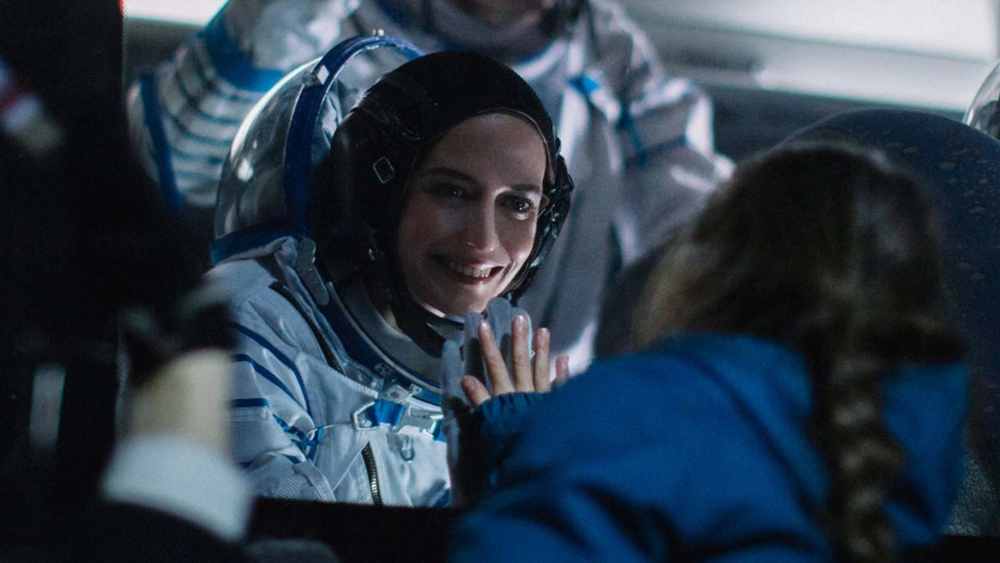
Alice Winocour’s science-fiction film offers a fine counterpoint to Interstellar’s personal narrative. Here the woman astronaut Sarah (Eva Green) leaves her 8-year-old daughter Stella for a year-long stay at the International Space Station. The complexities of parenthood are the central theme of Alice Winocour’s astronaut drama. It’s a once-in-a-lifetime opportunity for Sarah. But not being part of her girl’s life for a year brings conflicting feelings.
The film also looks at the strength women had to display to fight sexism and misogyny in the workspace. Similar to The Right Stuff (1983), Proxima brings a great sense of authenticity to the rigorous astronaut training procedure. Most of it was shot at the real training facilities at the European Space Agency. The performances of both Eva Green and Zelie Boulant-Lemesle (as Stella) are absolutely fantastic. Alice’s film doesn’t have any of the elevated sci-fi action sequences, but it’s a deep relationship drama for the space age.
13. Ad Astra (2019)
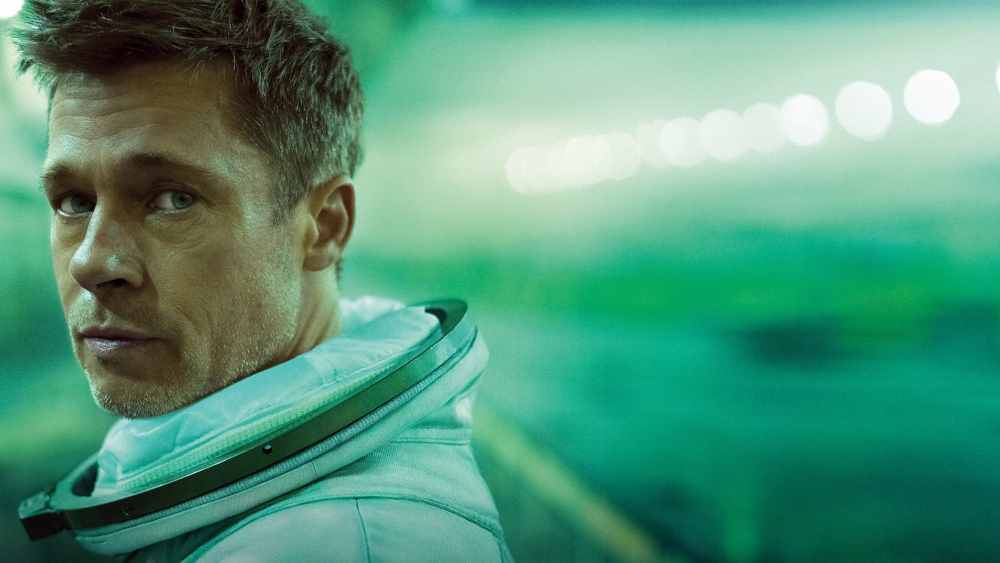
Both Ad Astra and Interstellar juggle the challenges of space travel and interpersonal relationships. In fact, some call James Gray’s 2019 psychological sci-fi movie the most realistic depiction of space travel ever put to film. Like Cooper’s bond with his daughter Murph, in Ad Astra, the narrative delves deeper into the bond between a parent and child. Roy McBride (Brad Pitt) undertakes a dangerous space quest to find extraterrestrial life that might also bring answers about his missing father, Clifford (Tommy Lee Jones).
The sci-fi thriller is sure to enthrall you with its stunning visuals of outer space. Its focus on the perils of space travel is more realistic than Interstellar. The actual space travel in Ad Astra comes across as more lonely and depressing than the wonderment we usually attach to space missions. Brad Pitt delivers an understated performance as an astronaut who ventures into space while also embarking on an internal journey.
Conclusion
Christopher Nolan-directed Interstellar is one of those rare gems that works as a stunning science fiction film about space exploration as much as a mind-bending, nail-biter. Whether you’re a sci-fi fanatic or a thrill junkie, we believe this list is the answer to all your binge-watching needs. Philip Kaufman’s The Right Stuff (1983), Makoto Shinkai’s Voices of a Distant Star (2002), and Gregory Hoblit’s Frequency (2000) are some more similar sci-fi movies like Interstellar. The latter two are about relationships that transcend the strict confines of time.
Damien Chazelle’s biopic First Man (2018) and Rian Johnson’s Looper (2012) are a couple of honorable mentions that narrowly missed out. There we are! These are some of the best mind-bending movies like Interstellar! What are your favorites on the list?
Additional writing by Arun Kumar

